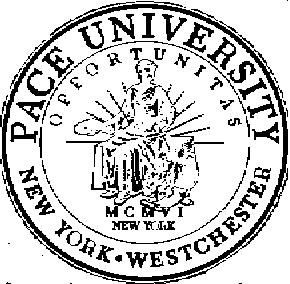POST WRITTEN BY: Prof. Peter Widulski, Assistant Director of the First Year Legal Skills Program and the Coach of International Criminal Moot Court Team at Pace Law School.
To follow up on an earlier post, on April 1, 2015 at a ceremony at The Hague the representatives of the International Criminal Court (ICC) welcomed Palestine as the 123rd Party to the ICC’s Rome Statute. The ICC representatives expressed hope that Palestine’s acceptance of the Rome Statute will contribute to the Statute’s goal of ending impunity for grave crimes of an international dimension.
Mindful of hotly contested issues relating to the Palestinian territory of Gaza, from which Hamas has launched attacks against Israel and in which Israel has launched attacks against Hamas, Judge Kuniko Ozaki, delivering Welcoming Ceremony remarks in the capacity of Acting President of the ICC, reminded Palestine that by becoming a State Party, it accepted the obligations (set out in Part 9 of the Rome Statute) requiring a State Party to “cooperate fully with the Court in its investigation and prosecution of crimes within the jurisdiction of the Court.”
The ICC Office of the Prosecutor (OTP) recently addressed issues relating to Gaza. In May 2013, the OTP opened a preliminary examination into an incident on May 31, 2010 relating to Israel’s naval blockade of Gaza. At issue was whether the OTP had sufficient basis to open a formal investigation regarding war crimes allegedly committed by members of the Israeli Defense Force (IDF) when they boarded registered vessels of ICC State Parties that were attempting to defy the blockade. After conducting a preliminary examination for approximately 17 months, on November 6, 2014 the OTP issued a report pursuant to Article 53(1) of the Rome Statute, in which it thoroughly reviewed the matter and decided not to open a formal investigation.
The OTP’s report concludes that Israel’s stated purpose for the blockade was to interdict arms shipments that it considered would be used by Hamas for attacks against Israel. In May 2010, groups opposing the blockade organized a flotilla to bring humanitarian aid to the Palestinians and also to protest and to encourage international condemnation of the blockade. Israel had offered to allow the humanitarian aid to be delivered to Palestine by other means. On May 31, 2010, IDF personnel boarded some of the vessels after providing a warning. Several passengers on board one of the vessels violently resisted the IDF, but this resistance was not of such a degree as to disqualify the resisting passengers’ status as protected persons under the Geneva Conventions. While the information available did not support several potential charges, there was a reasonable basis to believe that the IDF willfully killed ten of the 500+ passengers, caused serious injury to several others, and committed outrages upon personal dignity of others. Nevertheless, the scale of the crimes involved, given the surrounding circumstances, did not meet the gravity requirement of Articles 17(1)(d) and 53(1)(d) of the Rome Statute.
Further, Rome Statute Article 8, defining war crimes, provides somewhat different rules depending on whether the acts in question were committed in the context of an international or non-international armed conflict. Addressing this issue, the OTP report concluded that “the prevalent view within the international community is that Israel remains an occupying power in Gaza” because of several controlling measures taken by Israel – despite Israel’s withdrawal of its forces from Gaza and the dismantling of Israeli settlements there in 2005. Citing basic principles of the international law of occupation, the OTP concluded that because Israel retains the capability of exercising effective control over Gaza, hostilities between Israel and Hamas implicated an international armed conflict.
Thus, if Israel is in fact in effective control of Gaza, ICC investigation of Gaza-related violence will likely be hampered because Israel, not being a Party to the ICC Statute, has no obligation to comply with ICC investigations. On the other hand, Palestine can find support in the international law of occupation, referenced by the OTP, stating that occupation of a State over part of the territory of another State does not displace the sovereignty of the latter over the occupied territory.
